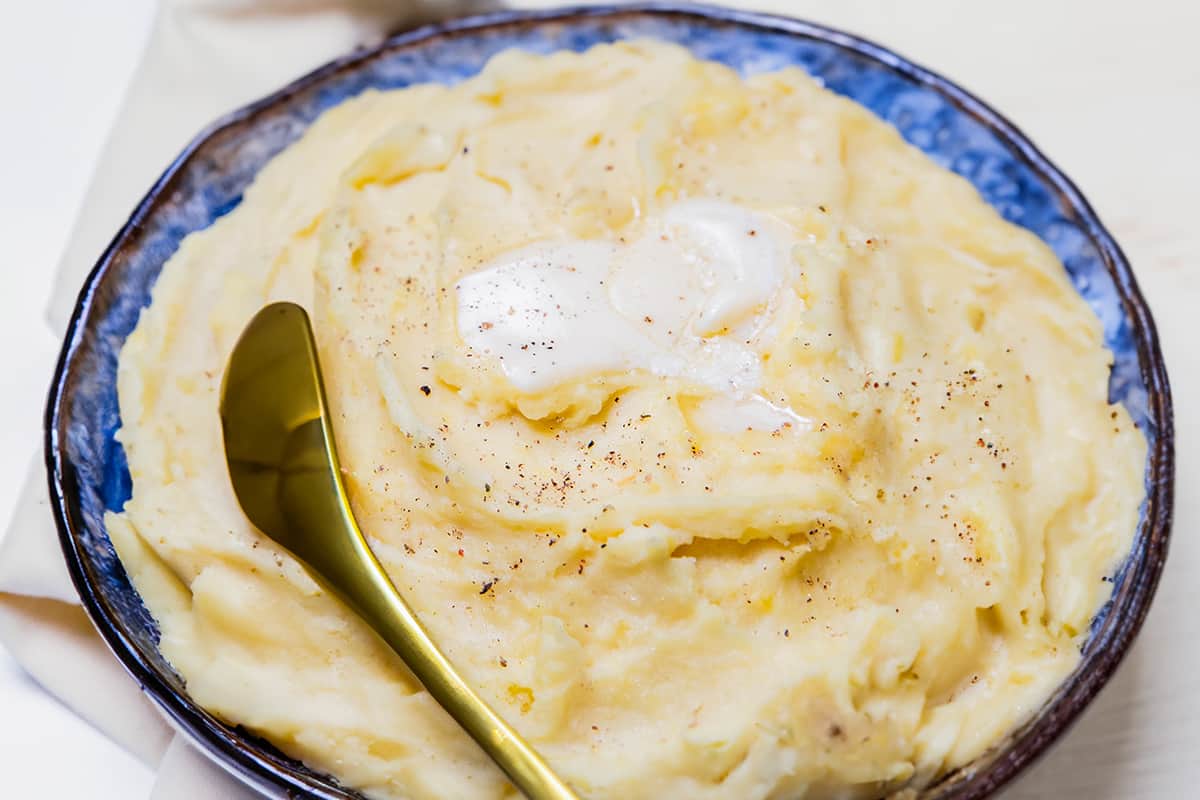
This site runs ads and generates income from affiliate links. Read my disclosure policy.
Learn everything you need to know to make perfect, buttery, creamy mash with this Best Ever Mashed Potatoes recipe.
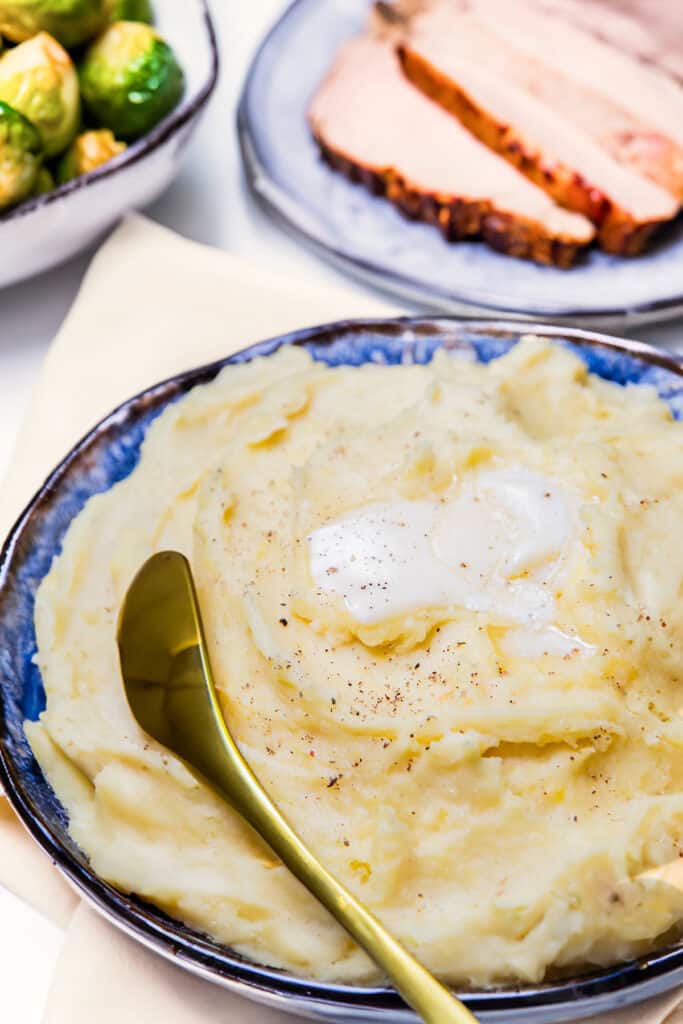
Serve this recipe alongside Roasted Brussels Sprouts and Oven Baked Chicken Thighs for a delicious dinner any night of the week.
Welcome to the ultimate guide for creating the most delectable mashed potatoes you’ll ever taste! In this post, we’re diving into a classic recipe that transforms simple ingredients into a dish of creamy, buttery perfection. Whether you’re a seasoned cook or just starting out in the kitchen, this “Best Ever Mashed Potatoes” recipe will surely impress. Its fluffy texture and rich flavor make it the perfect side dish for any meal, from cozy family dinners to festive holiday feasts. Let’s begin this journey to mastering the art of making the perfect mashed potatoes!
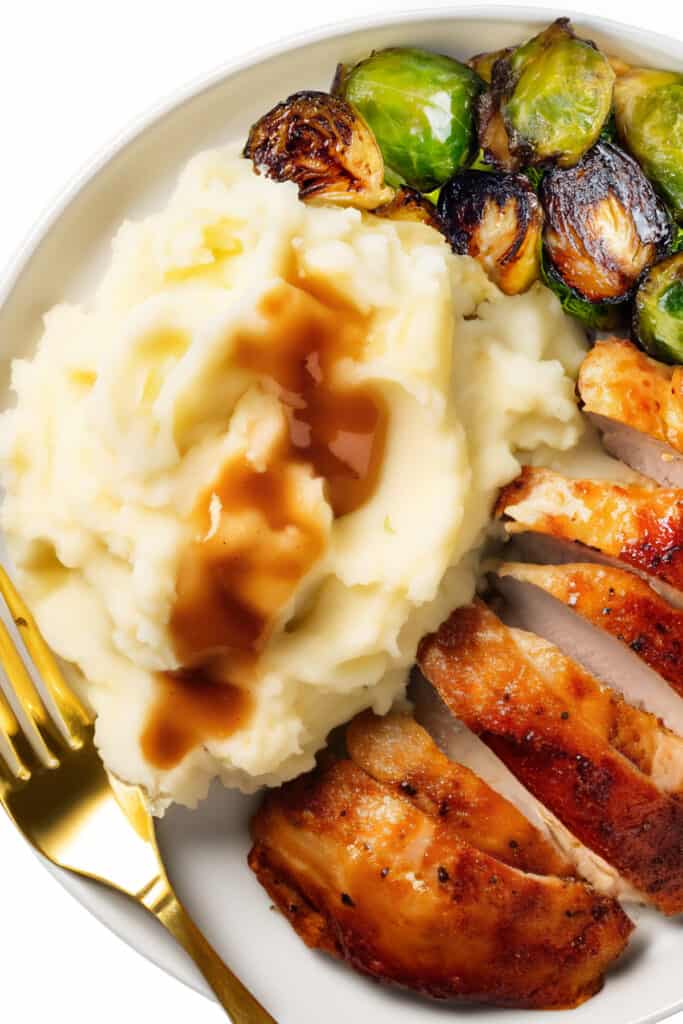
Why This Recipe Works
- Cooking the potatoes in well-seasoned water ensures a wonderfully flavorful finish.
- Using cream and milk gives a balance of creamy, rich flavor that everyone will love!
- Heating the cream before mashing the potatoes allows them to avoid over-mixing easily.
Ingredient Notes
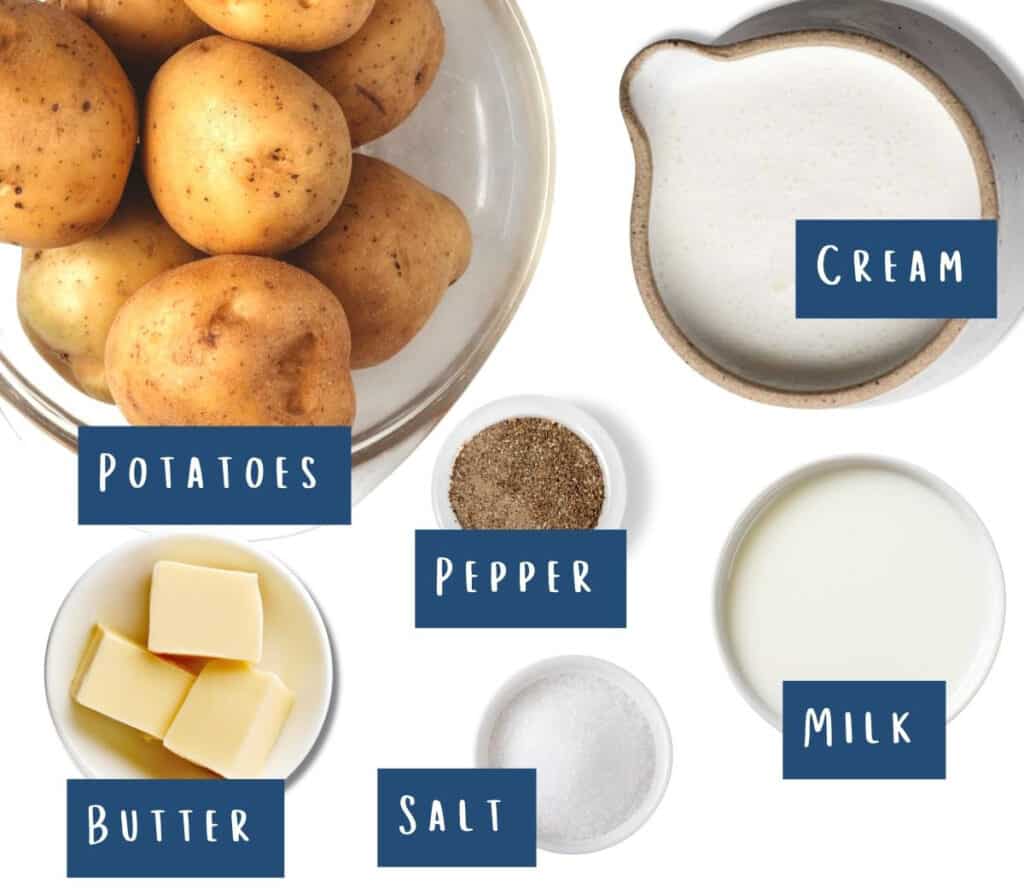
Potatoes: Russet, Yukon Gold, or Maris Piper potatoes are the best choices. Russets are ideal for fluffy and light mashed potatoes, while Yukon Golds offer a richer, buttery flavor. Maris Piper is an excellent choice in the UK. For more details on choosing the best potatoes, please refer to the following section of this post.
Substitutions: Any high-starch potato can be used as a substitute if these varieties are unavailable.
Butter: Unsalted butter is preferred as it allows you to control the saltiness of your dish.
Substitutions: For a vegan option, use a plant-based butter substitute. Salted butter can also be used, but the additional salt added later can be reduced.
Half-and-Half: This adds creaminess without being too heavy.
Substitutions: You can use a mixture of milk and heavy cream (equal parts) as an alternative. For a lighter version, use whole milk.
If you’re outside the U.S. and don’t have access to half-and-half for your mashed potatoes, a great substitute is to mix equal parts of whole milk and light cream or single cream, which replicates its fat content and creaminess. You can also use whole milk alone for a lighter or richer texture. Mix three parts milk to one part heavy or double cream. If you need a non-dairy alternative, full-fat unsweetened coconut milk or rich almond milk are good options, though they will slightly alter the flavor and texture.
Milk: Whole milk is recommended for its richness.
Substitutions: Skim or 2% milk can be used as a lower-fat option. Plant-based milks like almond or soy milk are suitable for dairy-free versions, though they may alter the flavor slightly.
Salt: Regular table salt, kosher, or sea salt works well for seasoning the cooking water and the mashed potatoes.
Substitutions: Kosher salt is a good alternative, but consider its larger granules when measuring.
Black Pepper: Freshly ground pepper offers the best flavor.
Substitutions: Pre-ground black pepper can be used if freshly ground is unavailable.
The Best Potatoes For Mashing
Choosing the best potatoes for mashed potatoes depends on the texture and flavor you prefer.
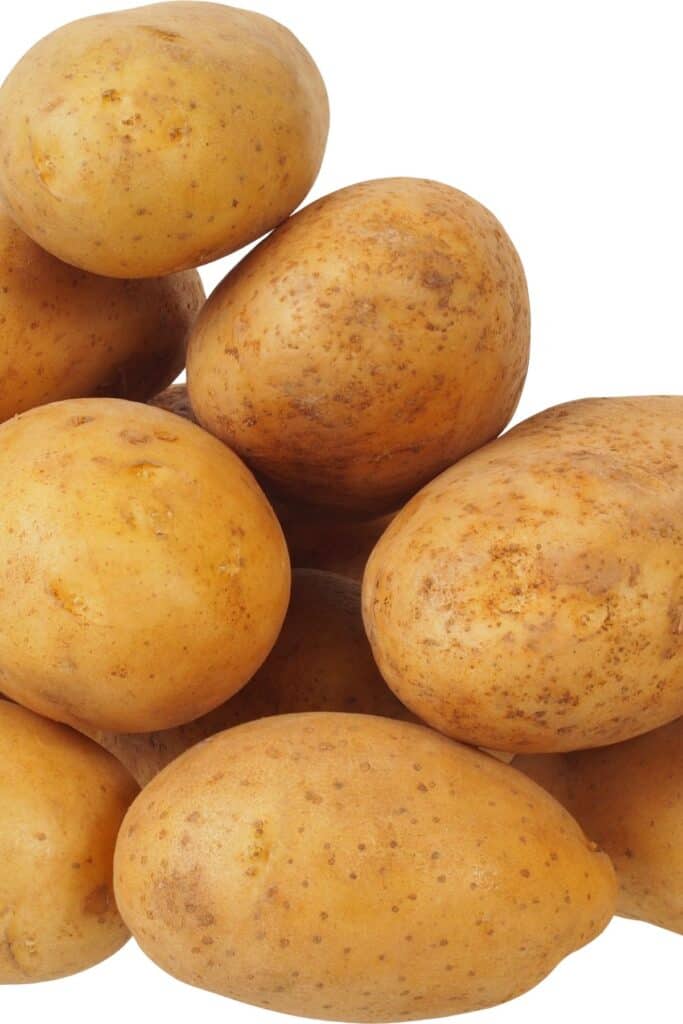
Look for varieties that are either high in starch or offer a good balance of starch and waxiness for creaminess and flavor. Some choices include Russet and Yukon Gold potatoes in the US, Maris Piper, and King Edward Potatoes in the UK and Europe, and Sebagos in Australia.
Step by Step Instructions
Preparing The Potatoes
Begin by peeling 3 pounds (1.36 kg) of Russet or Yukon Gold potatoes. These types of potatoes make your mashed potatoes fluffy and creamy.
Next, cut the potatoes into evenly sized chunks, roughly 1 to 2 inches (2.5 to 5 cm) in size. This ensures they cook evenly.
Cooking The Potatoes
Place the cut potatoes in a large pot. Cover them with cold water, ensuring the water level is about an inch (2.5 cm) above the potatoes, and be sure to salt the water.
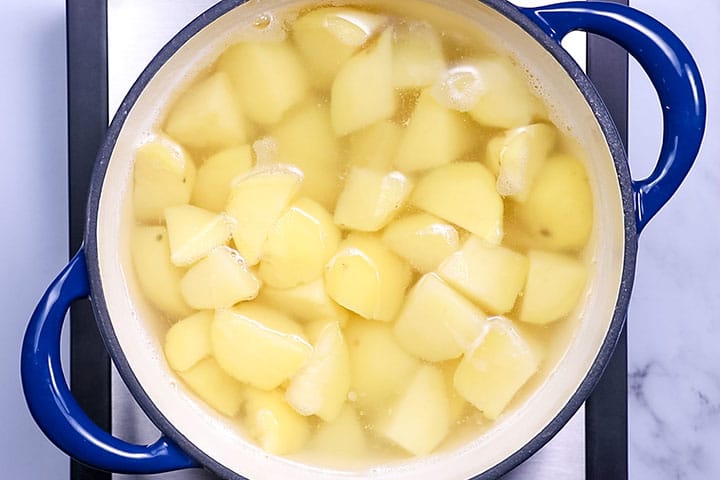
When boiling potatoes, a good rule of thumb is to add about 1 teaspoon of salt per quart (4 cups) of water. This ratio helps to season the potatoes from the inside, enhancing their flavor. If you’re using a large pot of water, you might use a bit more salt, but sticking to this basic ratio will generally give you well-seasoned potatoes that aren’t overly salty. Remember, you can always adjust the seasoning later when mashing or serving the potatoes.
Bring the water to a boil over high heat. Once boiling, reduce the heat to medium-high. Let the potatoes cook for about 10 to 15 minutes. They are done when you can easily pierce them with a fork.
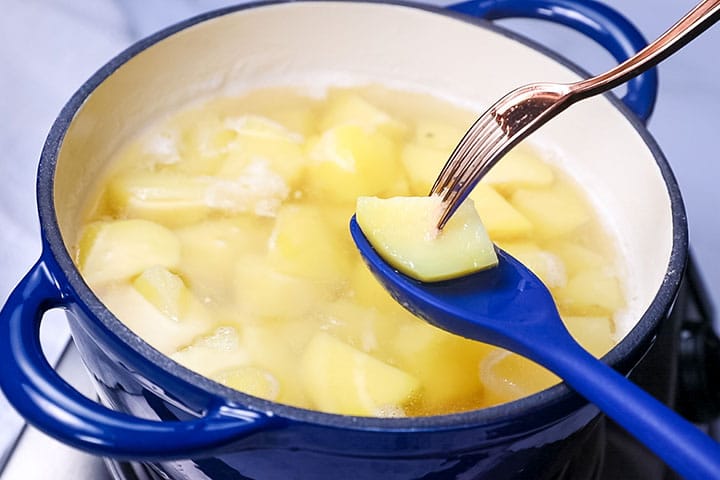
Preparing The Cream, Milk & Butter
While the potatoes are cooking, take another pot. In it, gently heat 8 tablespoons (113 grams) of unsalted butter, ¼ cup (60 ml) of half-and-half, and ¾ cup (180 ml) of milk. Do this over low heat to avoid boiling the mixture.
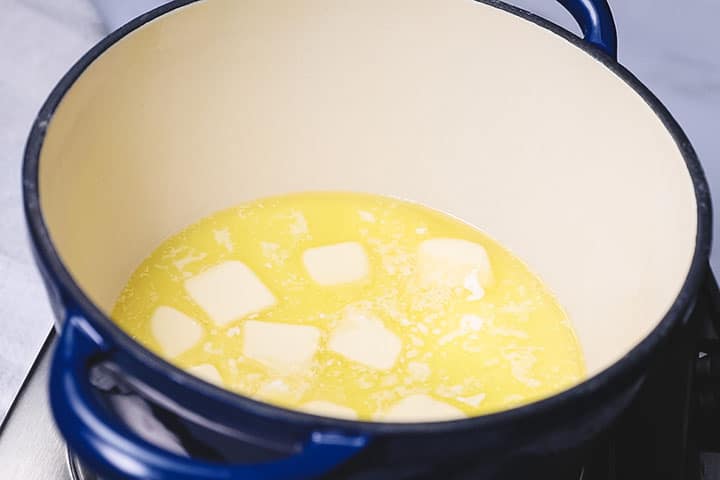
Draining Potatoes
Carefully drain out all of the water.
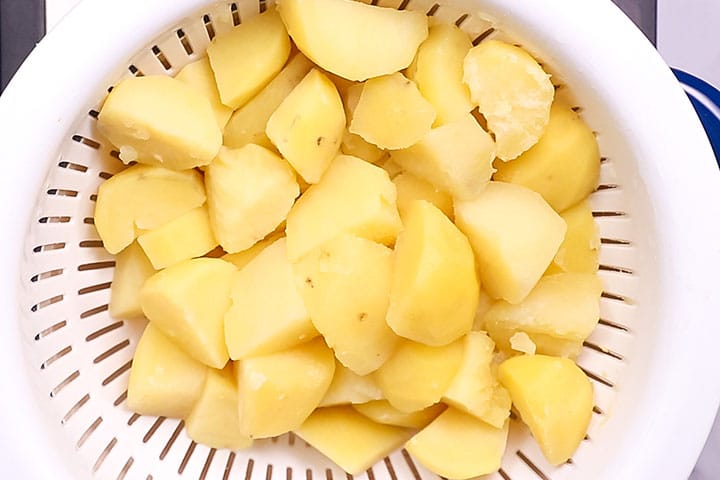
Mashing The Potatoes
Add the warmed half-and-half mixture to the pot in which you cooked the potatoes with 2 teaspoons of sea salt and the butter.
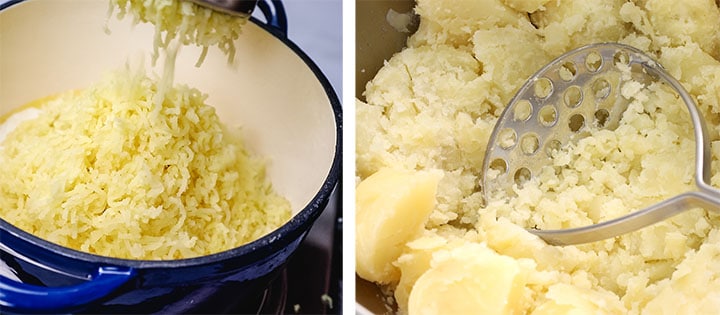
Then, mash the potatoes until they are smooth using a potato masher or ricer.
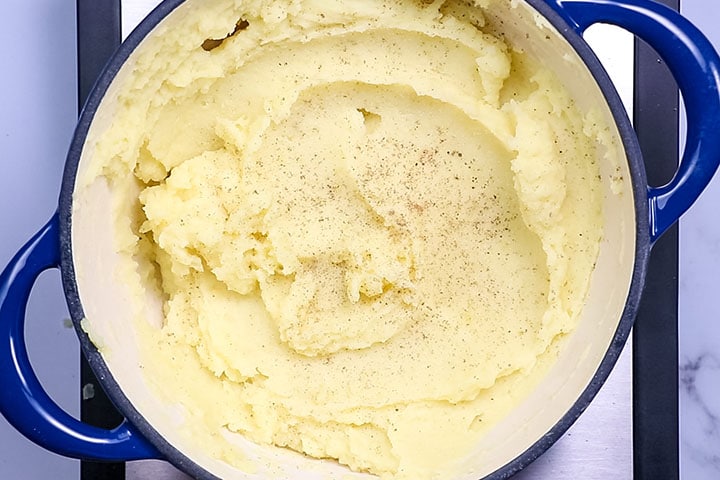
Add more butter or half and half a little at a time until it reaches your desired consistency and creaminess. Taste for seasoning, and season to taste.
Serve and enjoy every last bite.
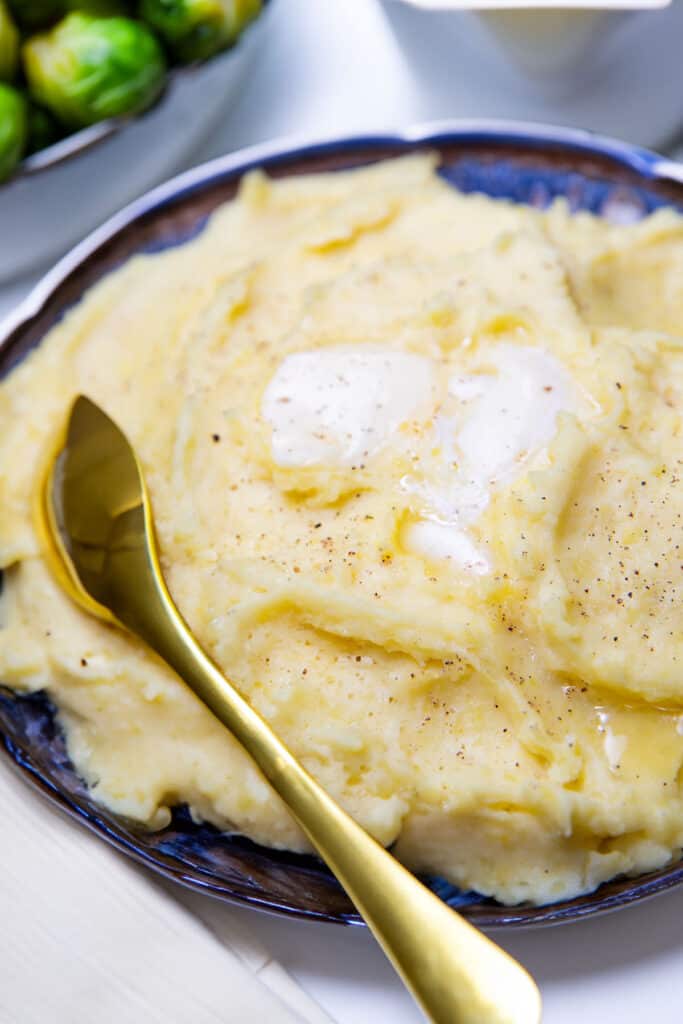
Tips For Best Results
- Always start with cold water when cooking potatoes. Using hot or boiling water will cause uneven cooking.
- Salt the water well. Potatoes absorb the cooking water as they cook. If your water doesn’t have any flavor, neither will your potatoes.
- Use Starchy Potatoes. I recommend Russets, Yukon Gold, or Maris Piper potatoes work great in the UK! Just don’t use waxy potatoes as they don’t break down well enough for mashing and won’t absorb the butter or milk.
- Cut your potatoes before boiling. Large, whole potatoes won’t cook evenly. So cut your potatoes into smaller pieces for quicker, even cooking.
- Use a fork and not a knife to check for doneness. A fork should slide easily into the potato when cooked. A sharp knife will slide into the potato even if it’s not cooked.
- Don’t overcook the potatoes. They’re ready to go as soon as a fork can be inserted easily into the potatoes.
- Be sure to mash your potatoes as soon as possible after draining. Waiting too long will result in a sticky, starchy mess.
- Don’t use a blender, mixer, or food processor to make your mash. It can easily result in a sticky, rubbery mash.
- Get a good ricer or masher. Good tools are always worth having. I own and recommend this ricer, and this smooth OXO masher makes a wonderful smooth mash.
- Leftover Mash Potatoes can dry out and may need additional butter or milk to return to their fresh creaminess.
Make ahead and Freezing Instructions
Mashed potatoes are a great side to make in advance. If it’s just an hour or so in advance, leave them in the pot you mashed them and put the pot in a large pan of simmering water to keep them warm.
To Make them days ahead: Store in an airtight container for up to three days in the fridge.
Reheat from chilled, reheat them in the oven on low heat, covered with a lid or foil, for 20 to 30 minutes.
When reheating, you may need additional butter or milk to bring them back to the creaminess they had when fresh.
Freezing Instructions: Freeze in an airtight, freezer-safe container for up to three months. To defrost, allow them to come up to room temperature before reheating.
FAQs
How many potatoes should you make per person for mashed potatoes?
Typically a half-pound of potatoes per person is enough for a side dish. So to calculate, if you are cooking for six, use 3lbs of potatoes.
Rate This Recipe
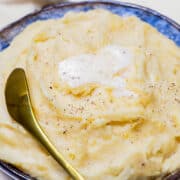
Recipe
Best Ever Mashed Potatoes
Ingredients
- 3 pounds potatoes (Yukon Gold, Russet, or Maris Piper, peeled)
- 8 tablespoons unsalted butter (plus 2 to 4 tablespoons for serving (optional))
- ¼ cup half-and-half (more as needed)
- ¾ cup milk
- 1 tablespoon salt (for cooking water, plus more to taste)
- Freshly ground black pepper (to taste)
- Enough water to cover the potatoes in the pot (approximately 2 to 3 inches above the potatoes)
Instructions
- Cut the potatoes into evenly-sized chunks, about 1 to 2 inches thick. Place them in a large stockpot and add enough cold water to cover the potatoes by about 2 to 3 inches.
- Add 1 tablespoon of salt to the water. Bring the water to a boil over high heat, then reduce the heat to medium-high (or whatever temperature is needed to maintain a steady boil). Continue cooking for about 10 to 15 minutes, or until a fork or knife can easily pierce the potatoes.
- While the potatoes are cooking, gently heat the 8 tablespoons of butter, half-and-half, and milk in a separate pot. Warm the mixture until the butter is melted and the mixture is hot but not boiling.
- Once the potatoes are cooked, carefully drain them and return them to the pot.
- Add the butter and warmed milk mixture to the potatoes. Mash the potatoes using a ricer or potato masher, then gently stir with a wooden spoon or spatula to combine. The potatoes will gradually absorb the liquid and become creamy.
- Adjust the consistency by adding more butter or half-and-half, if desired. Season with additional salt and freshly ground black pepper to taste. Serve warm, with additional butter if preferred.
Tips
- The exact amount of water needed will depend on the size of your pot. Ensure the potatoes are fully submerged with a few inches of water above them.
- When boiling potatoes, a good rule of thumb is to add about 1 teaspoon of salt per quart (4 cups) of water. This ratio helps to season the potatoes from the inside, enhancing their flavor. If you’re using a large pot of water, you might use a bit more salt, but sticking to this basic ratio will generally give you well-seasoned potatoes that aren’t overly salty. Remember, you can always adjust the seasoning later when mashing or serving the potatoes.
- For the best texture, avoid overworking the potatoes when mashing and stirring.
- Remember to taste and adjust the seasoning before serving.
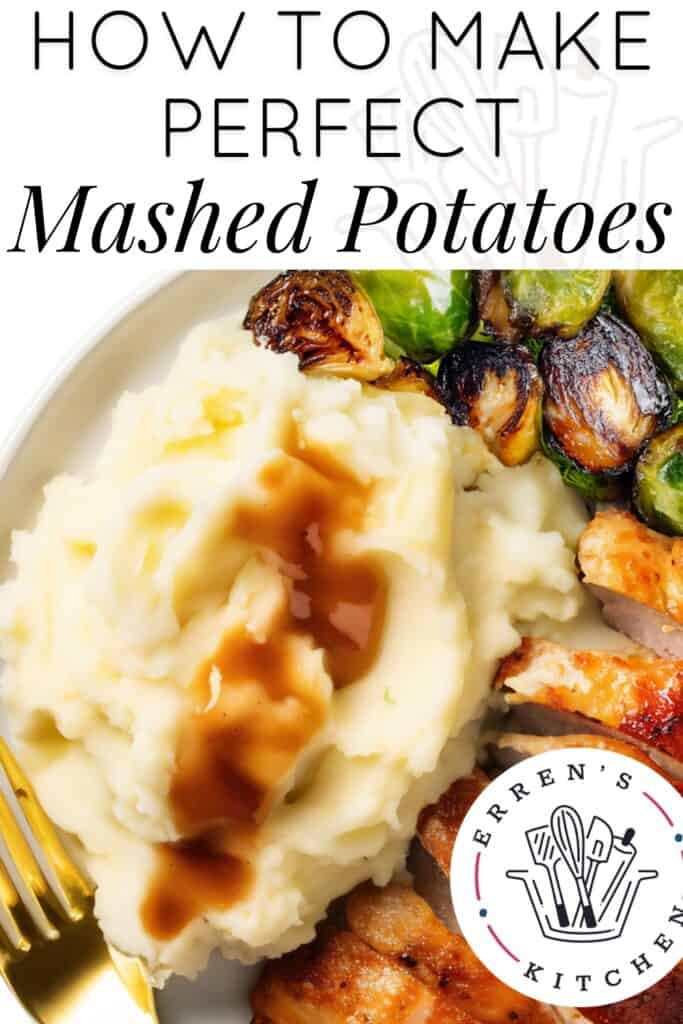
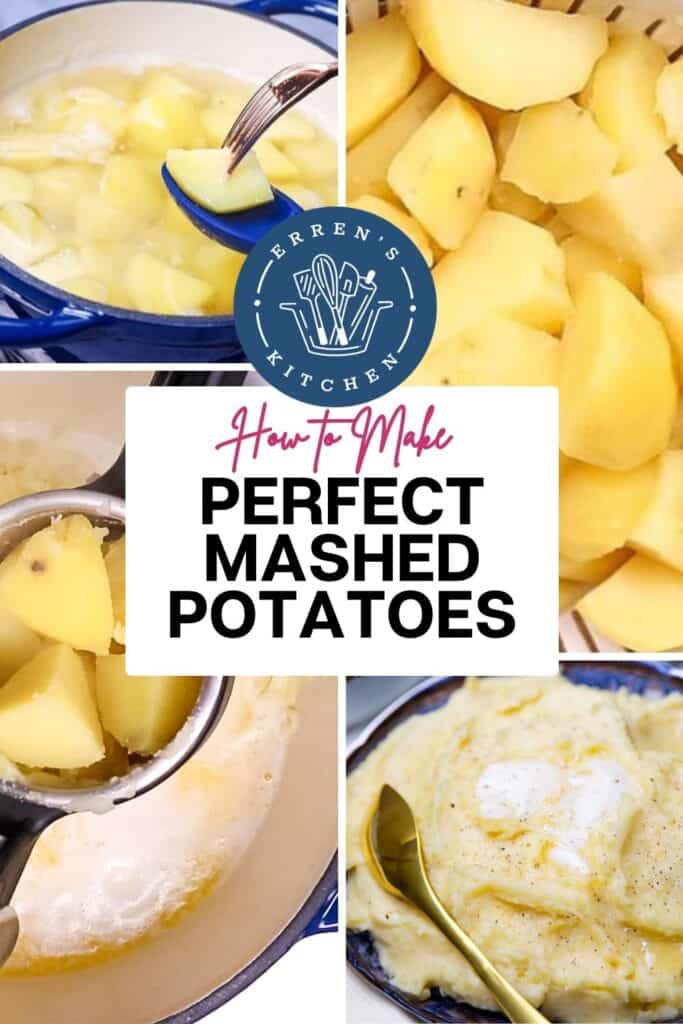
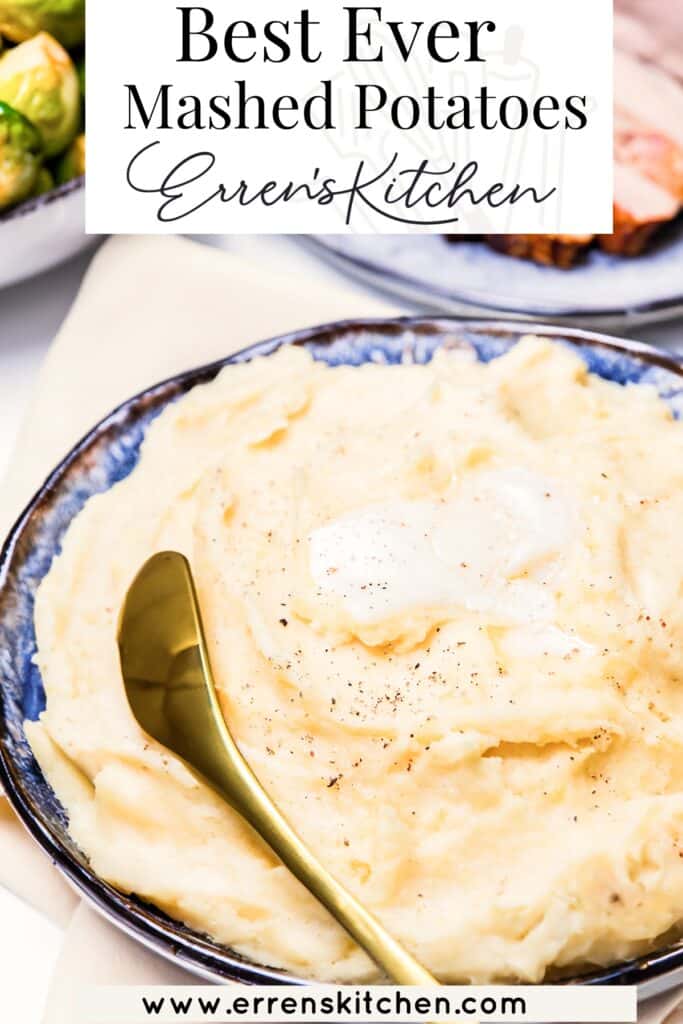

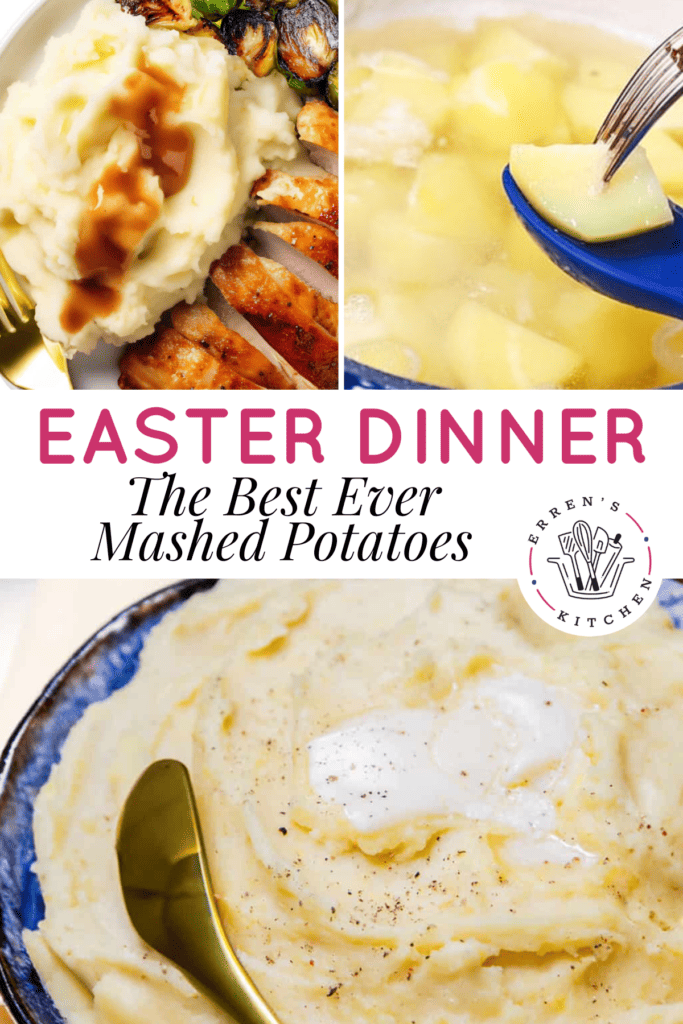

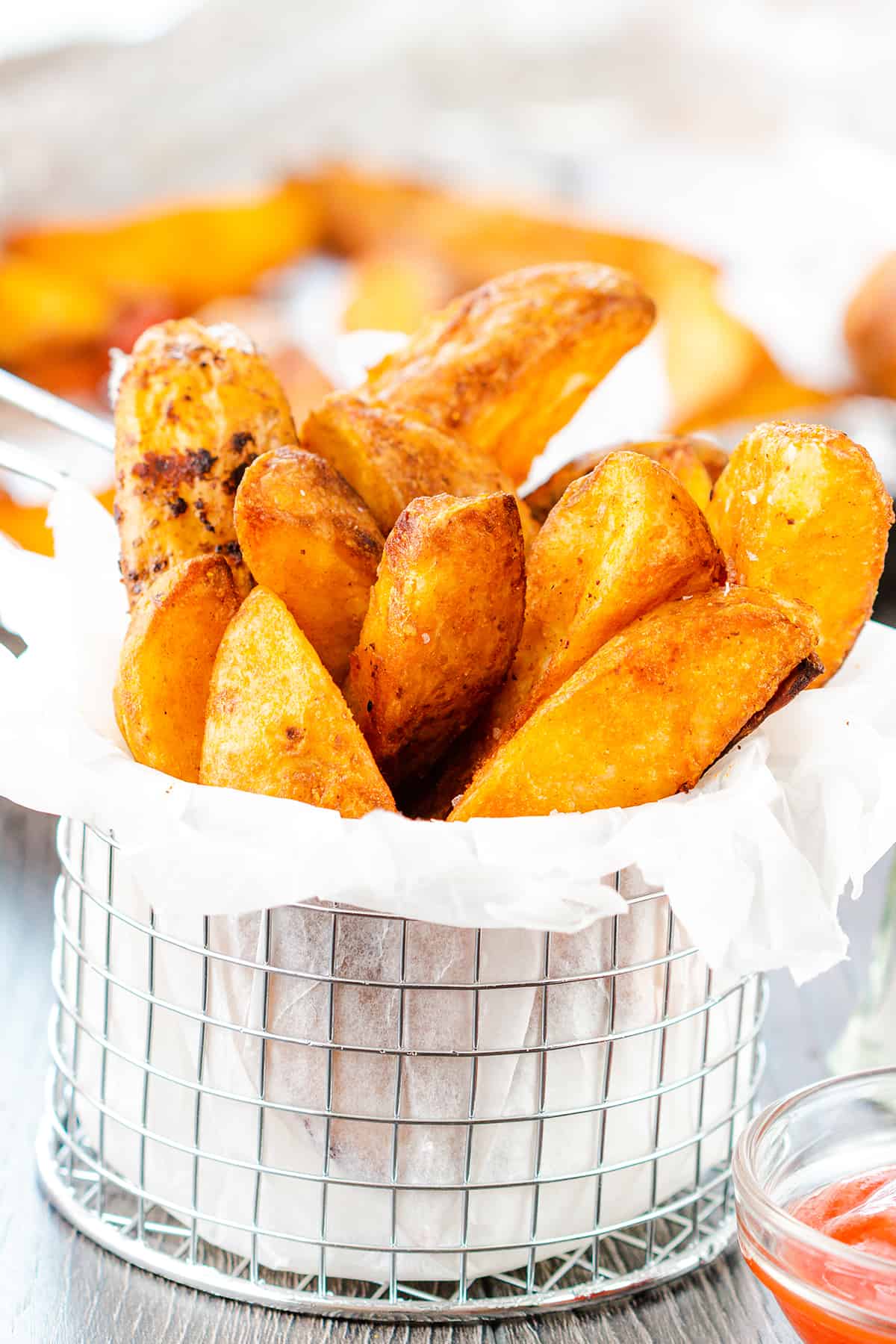
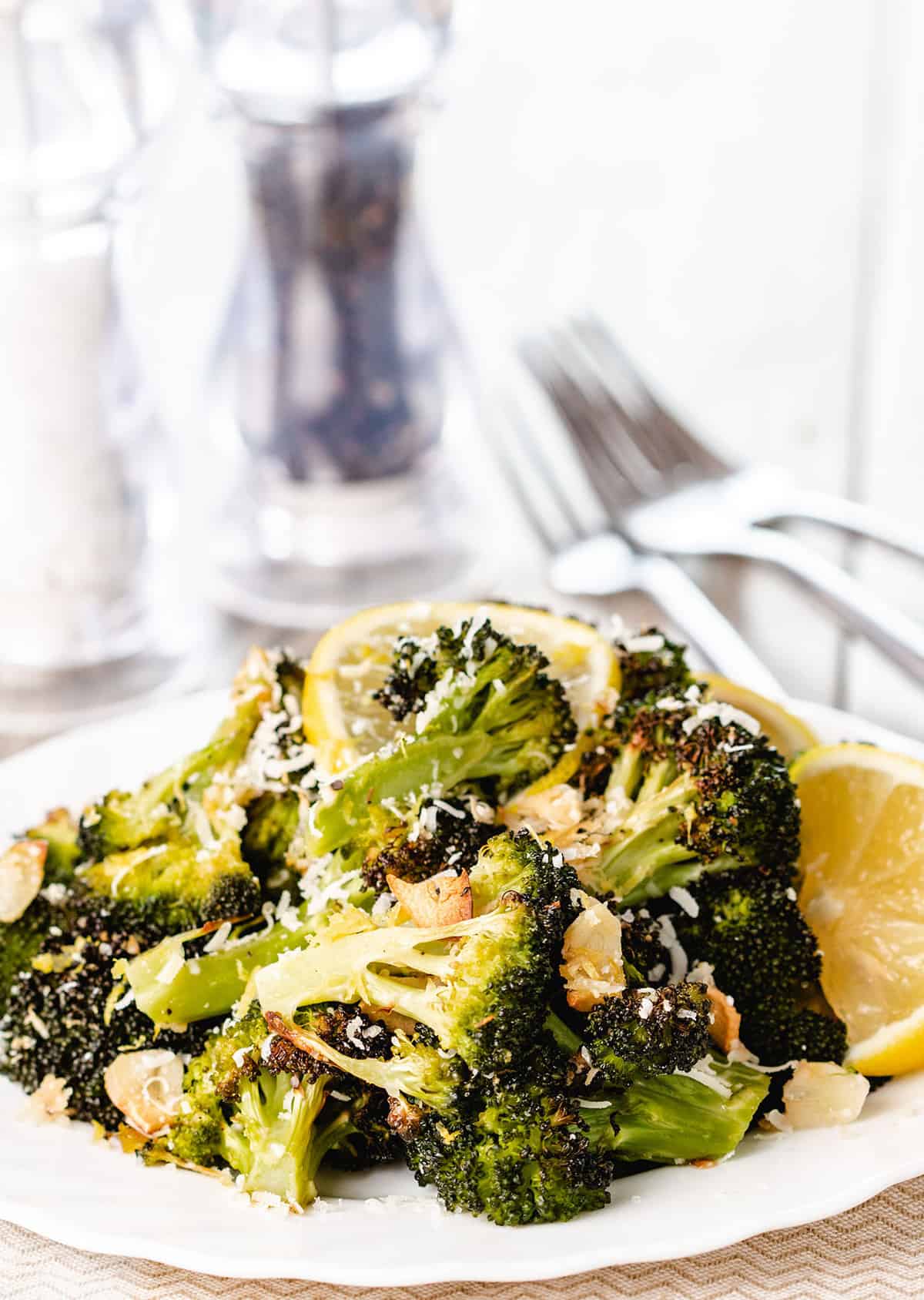
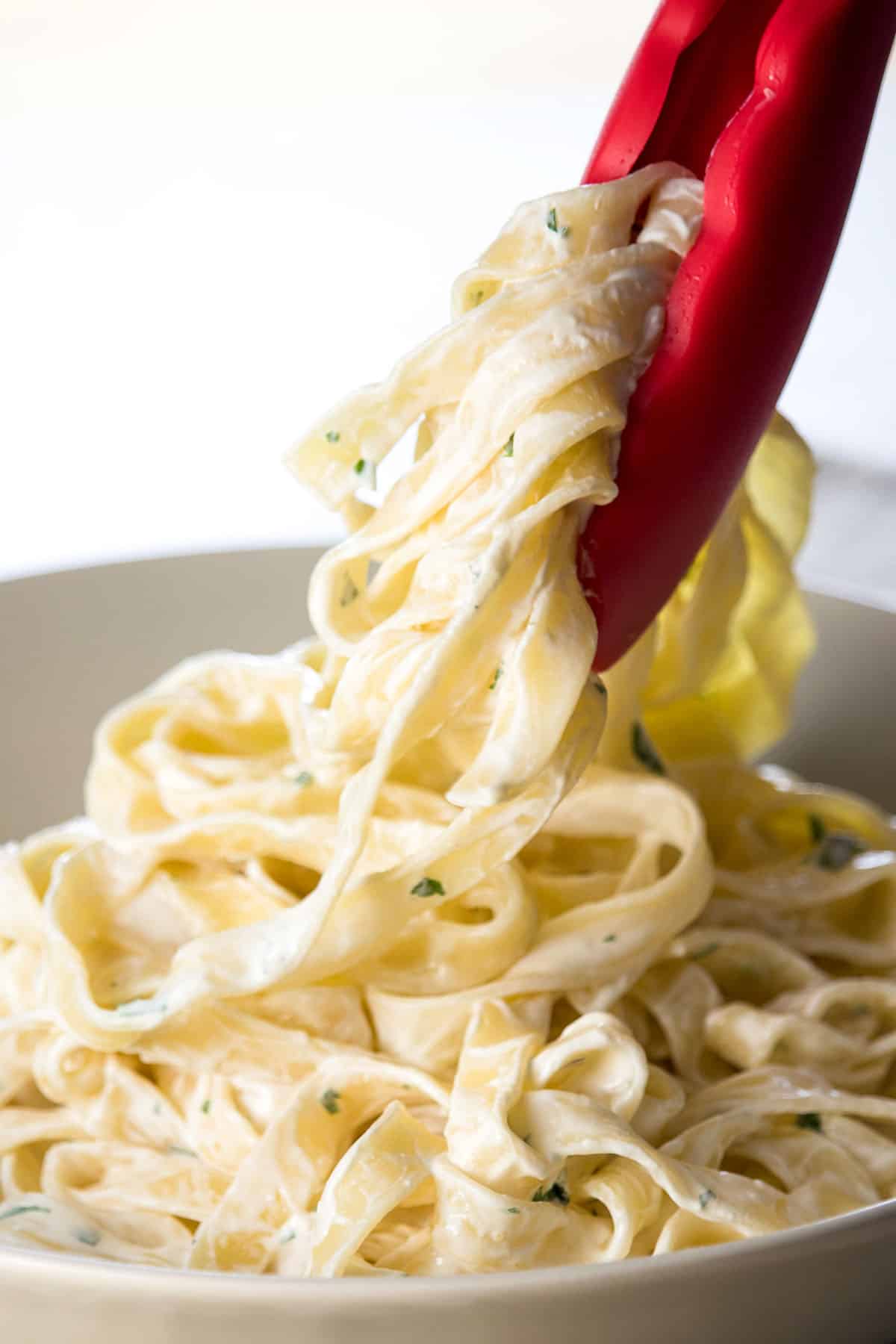
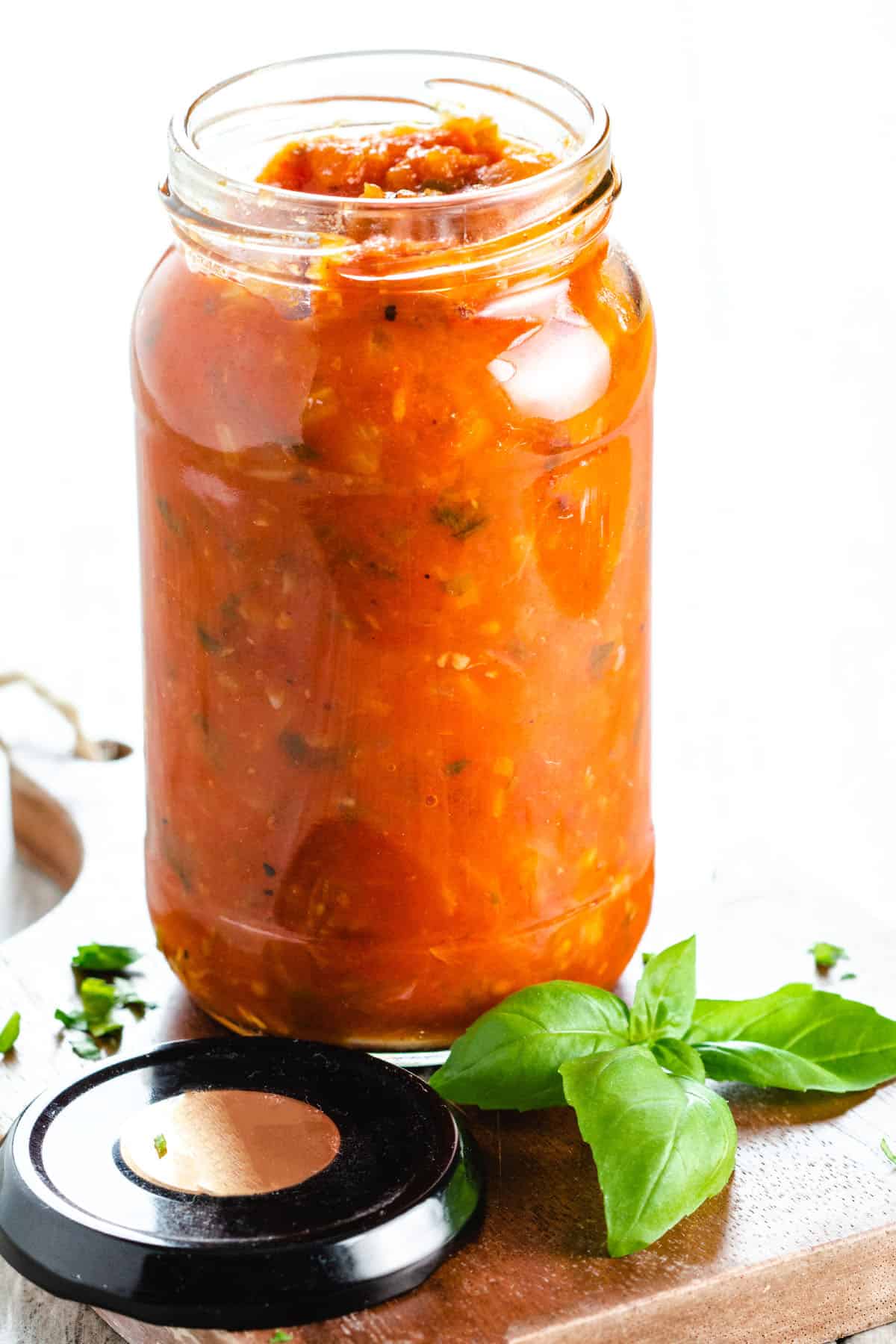
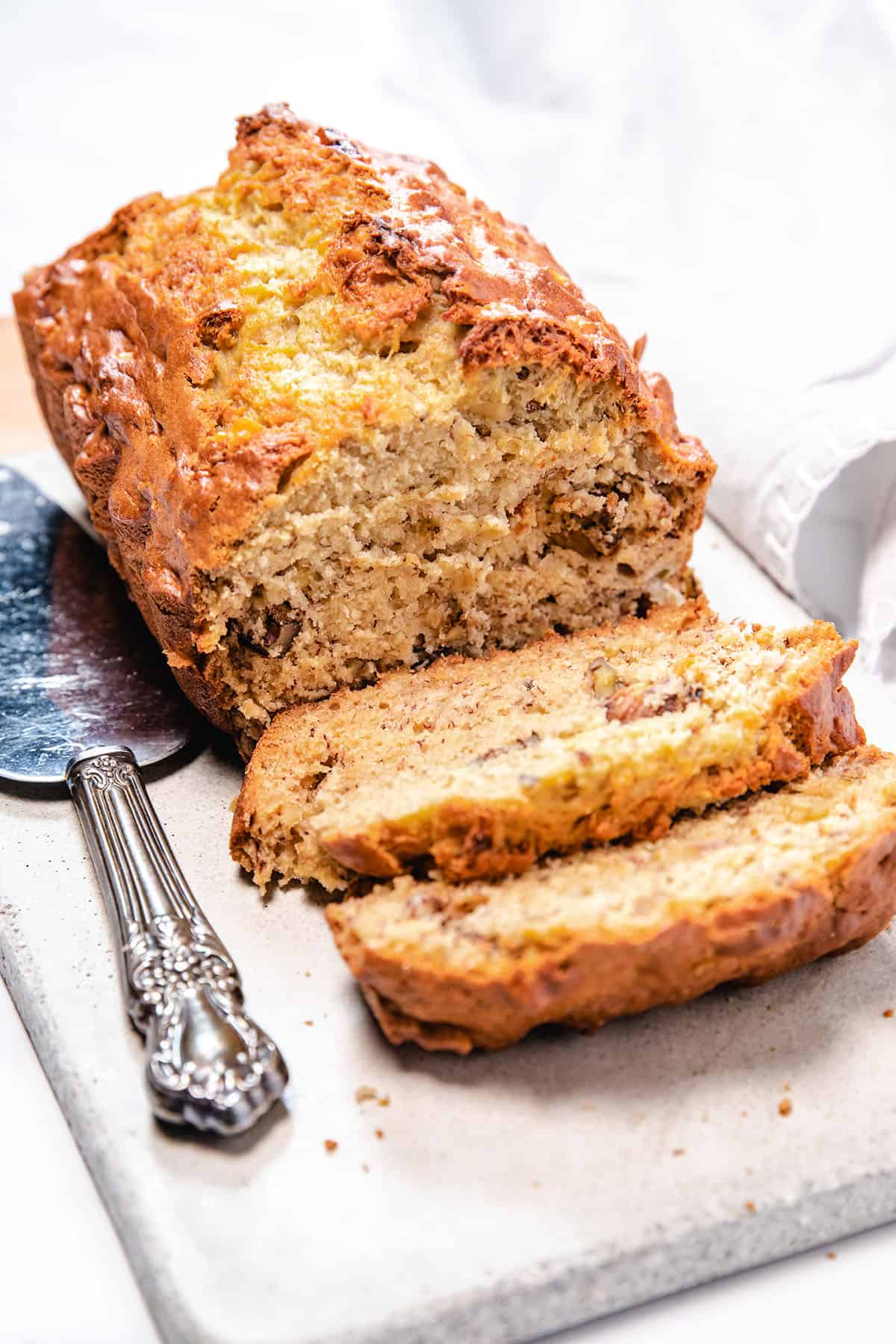
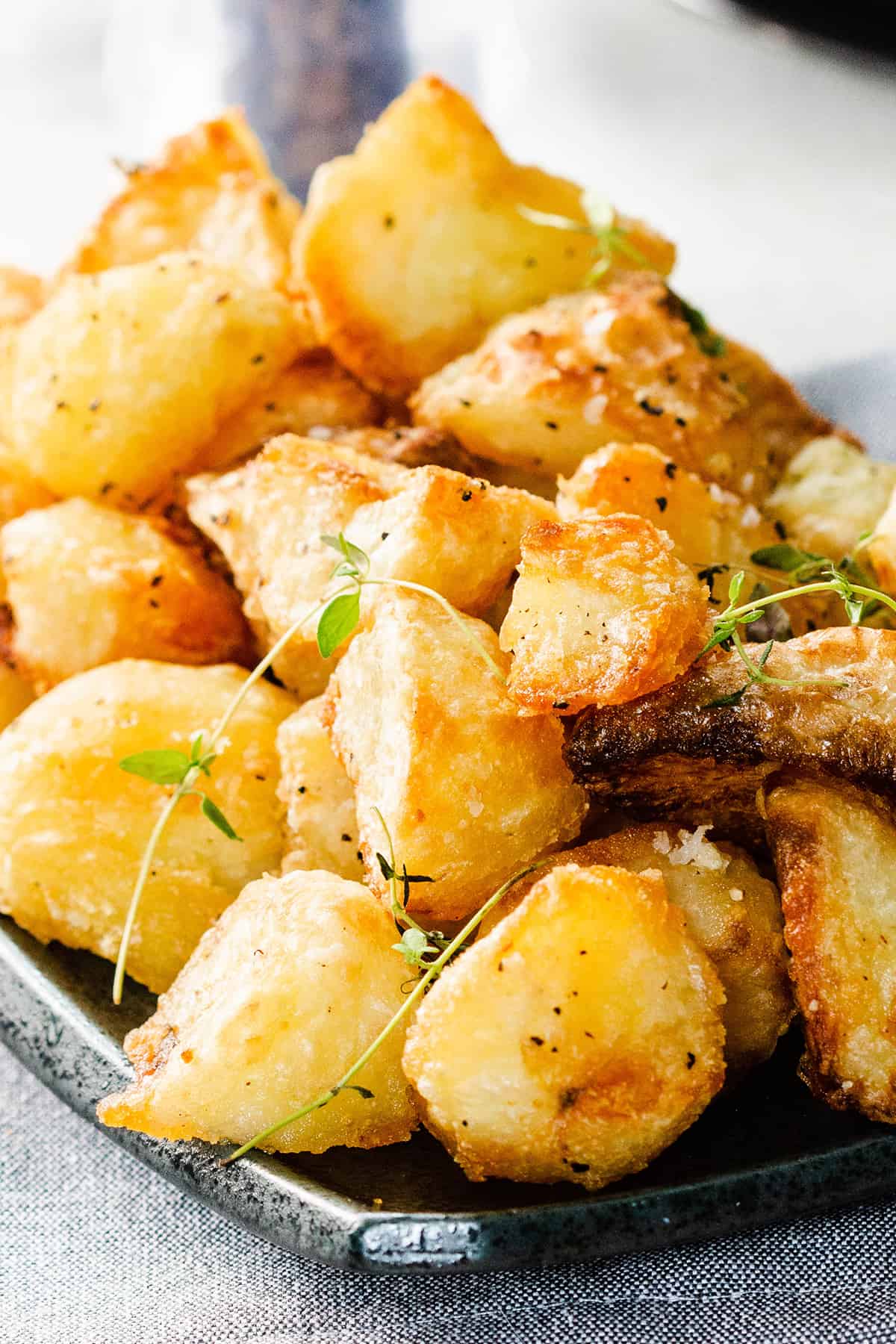
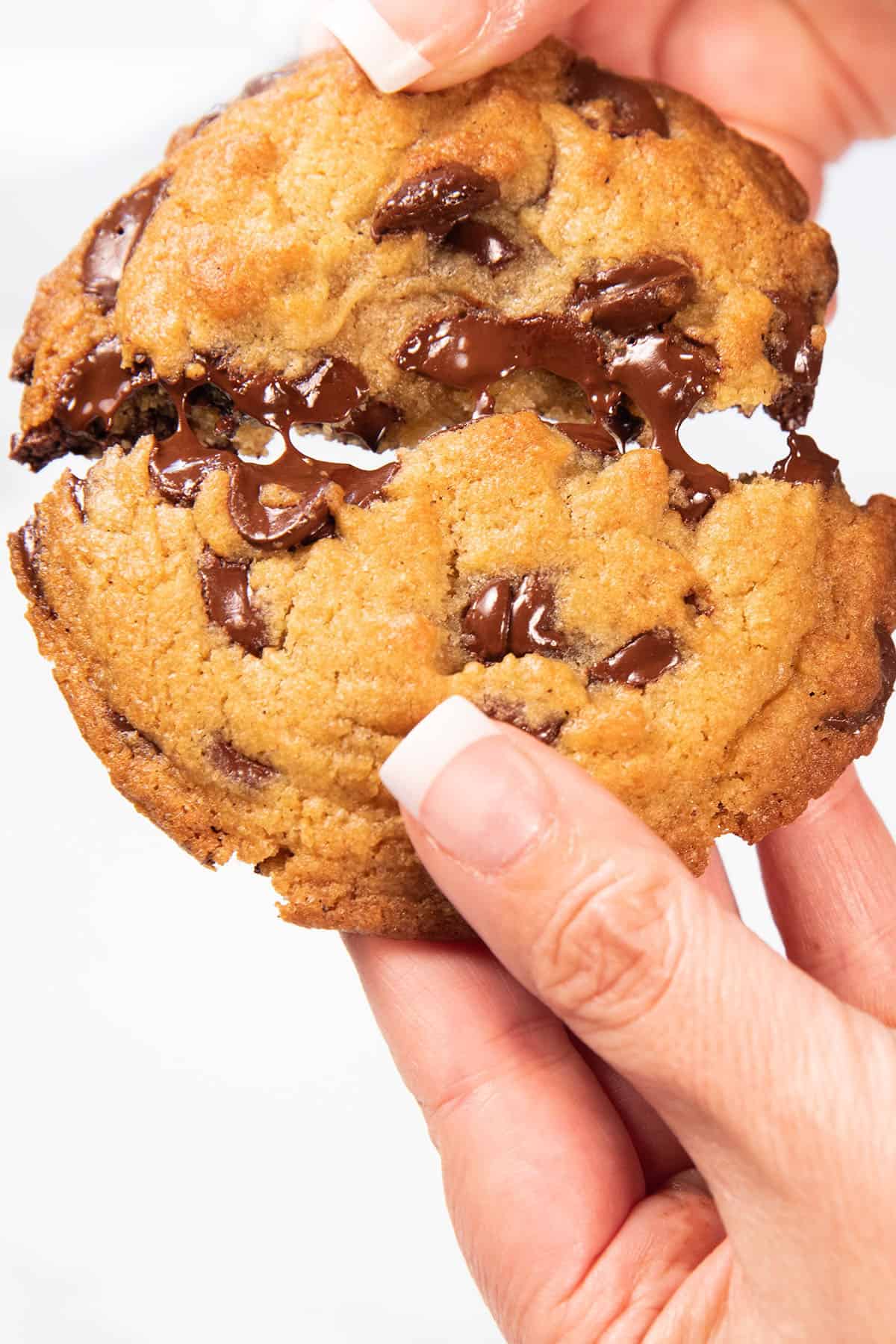
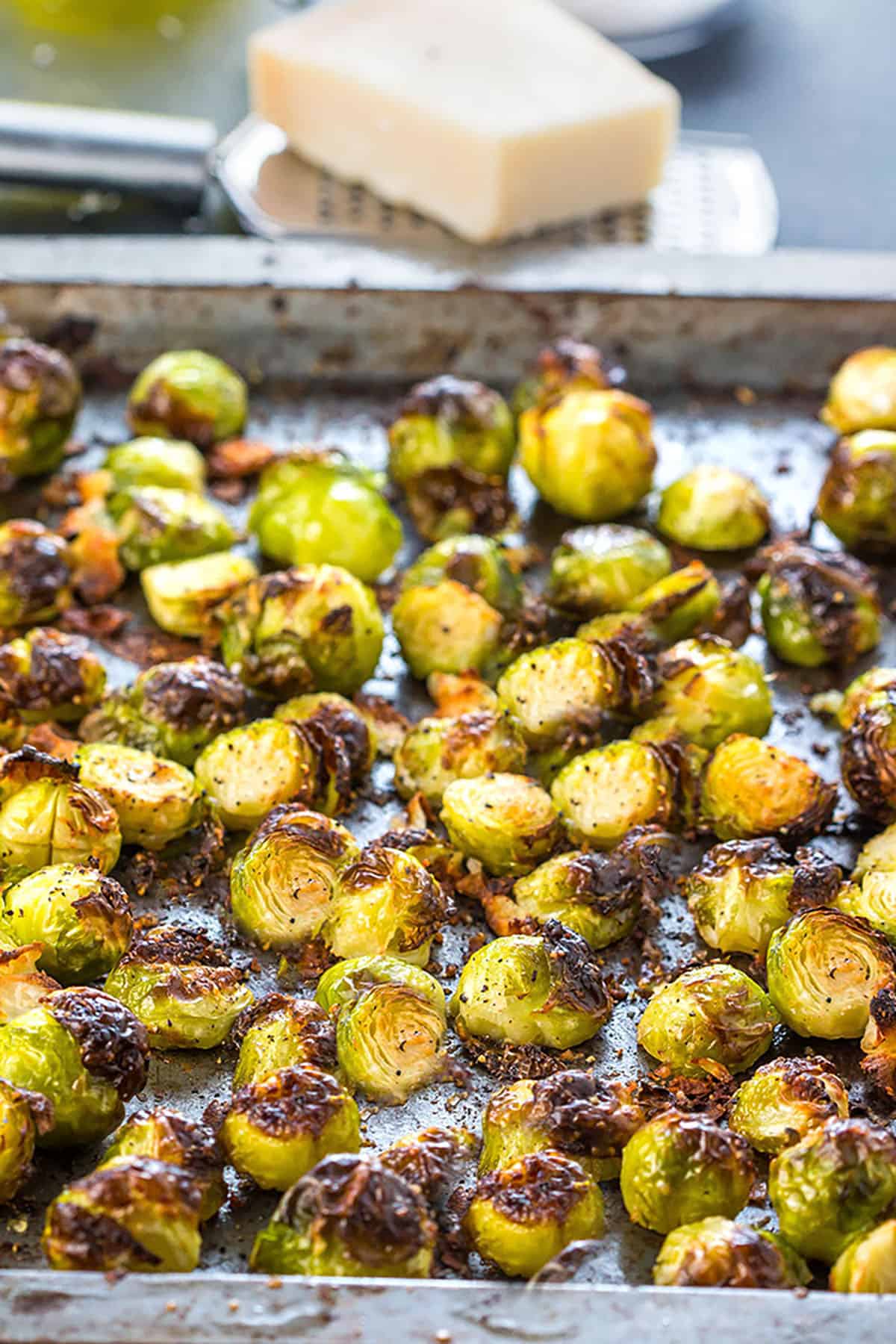
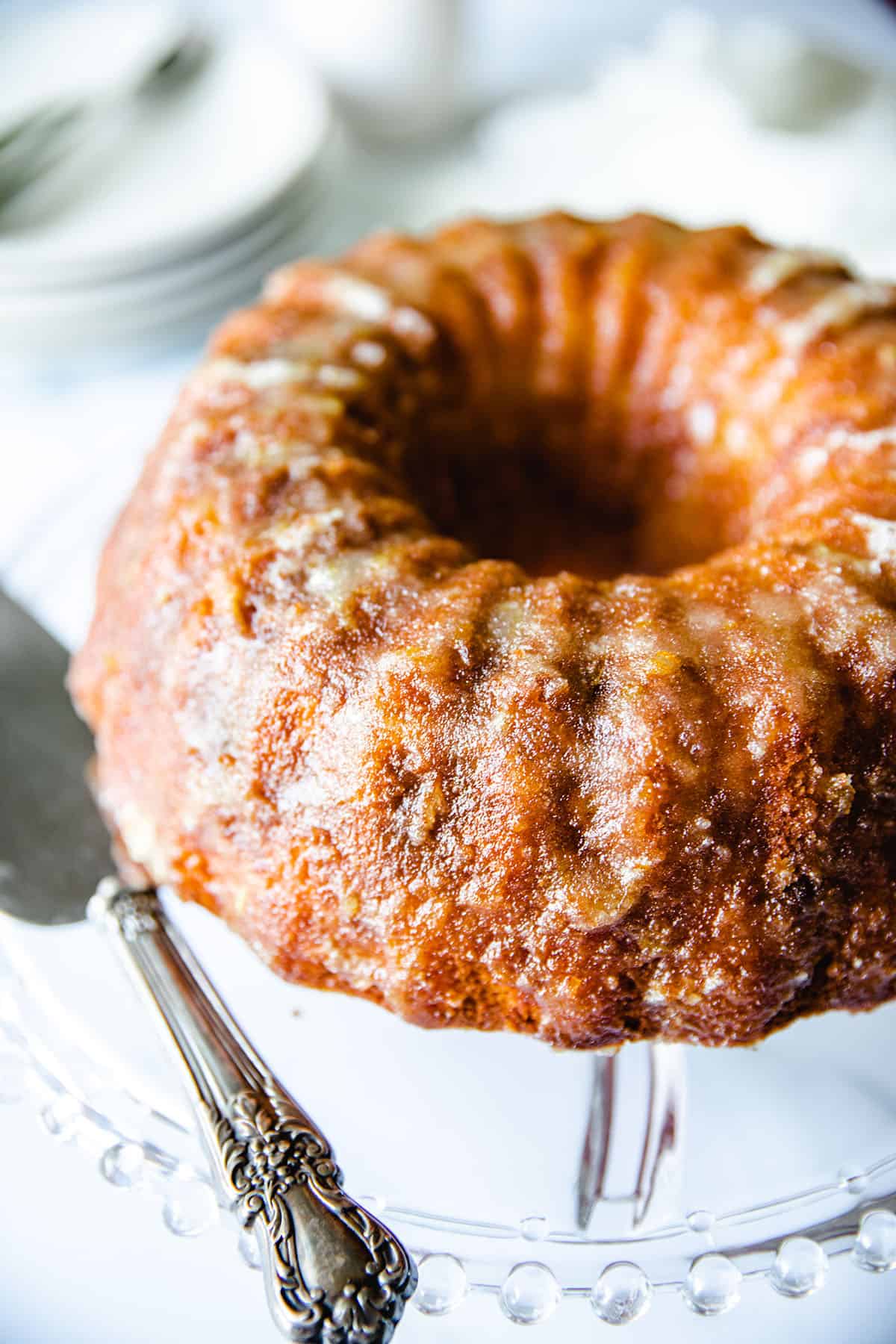
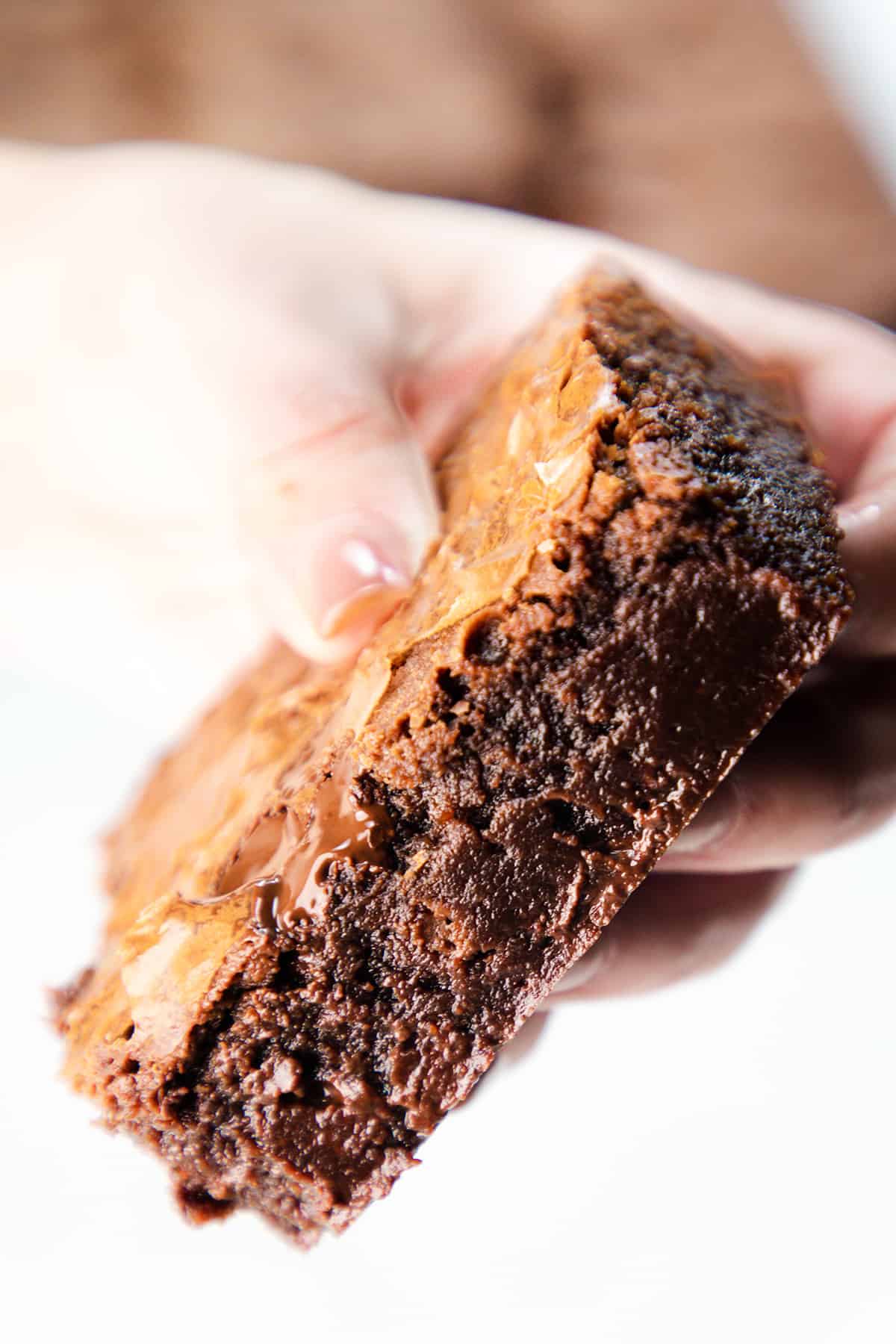
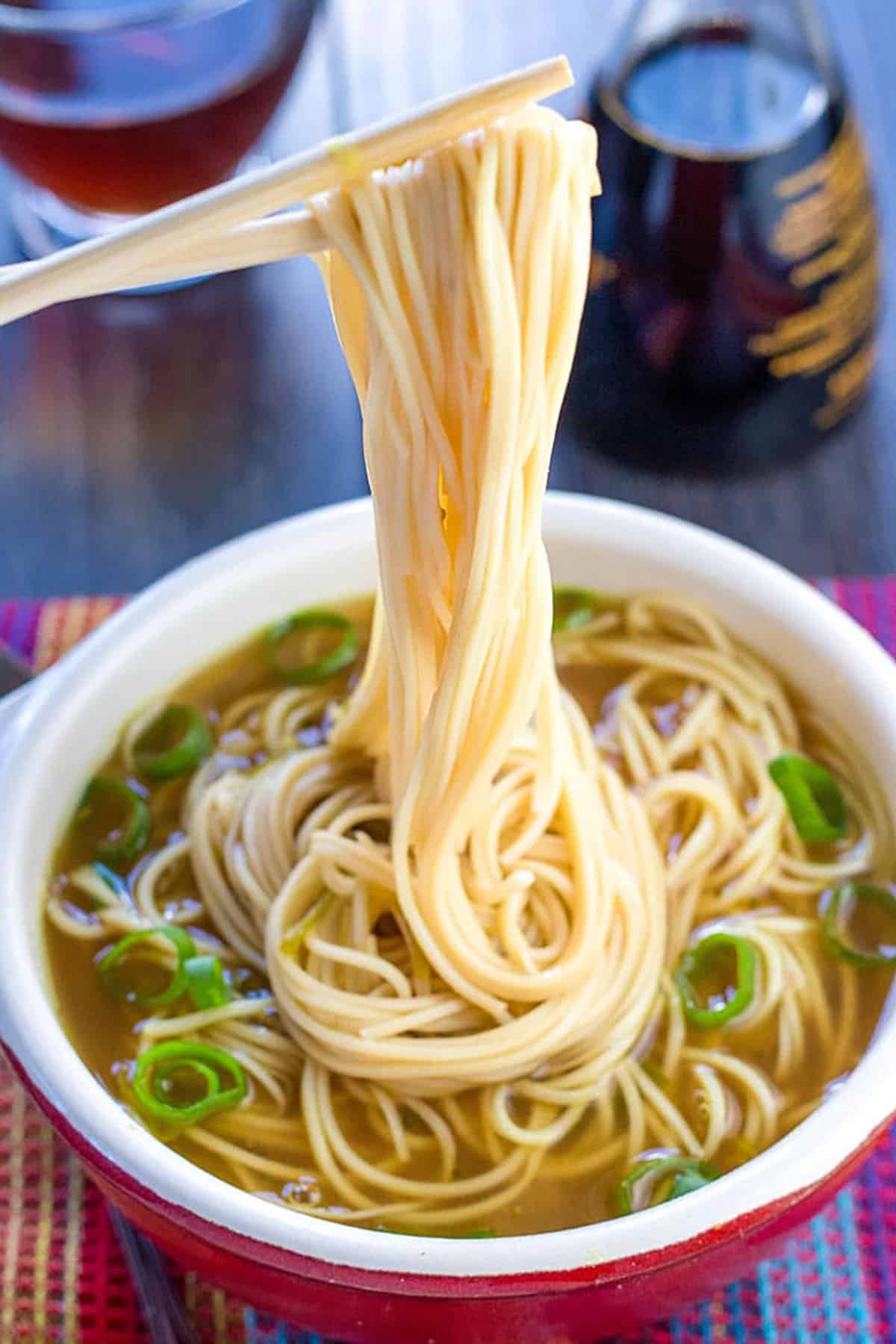
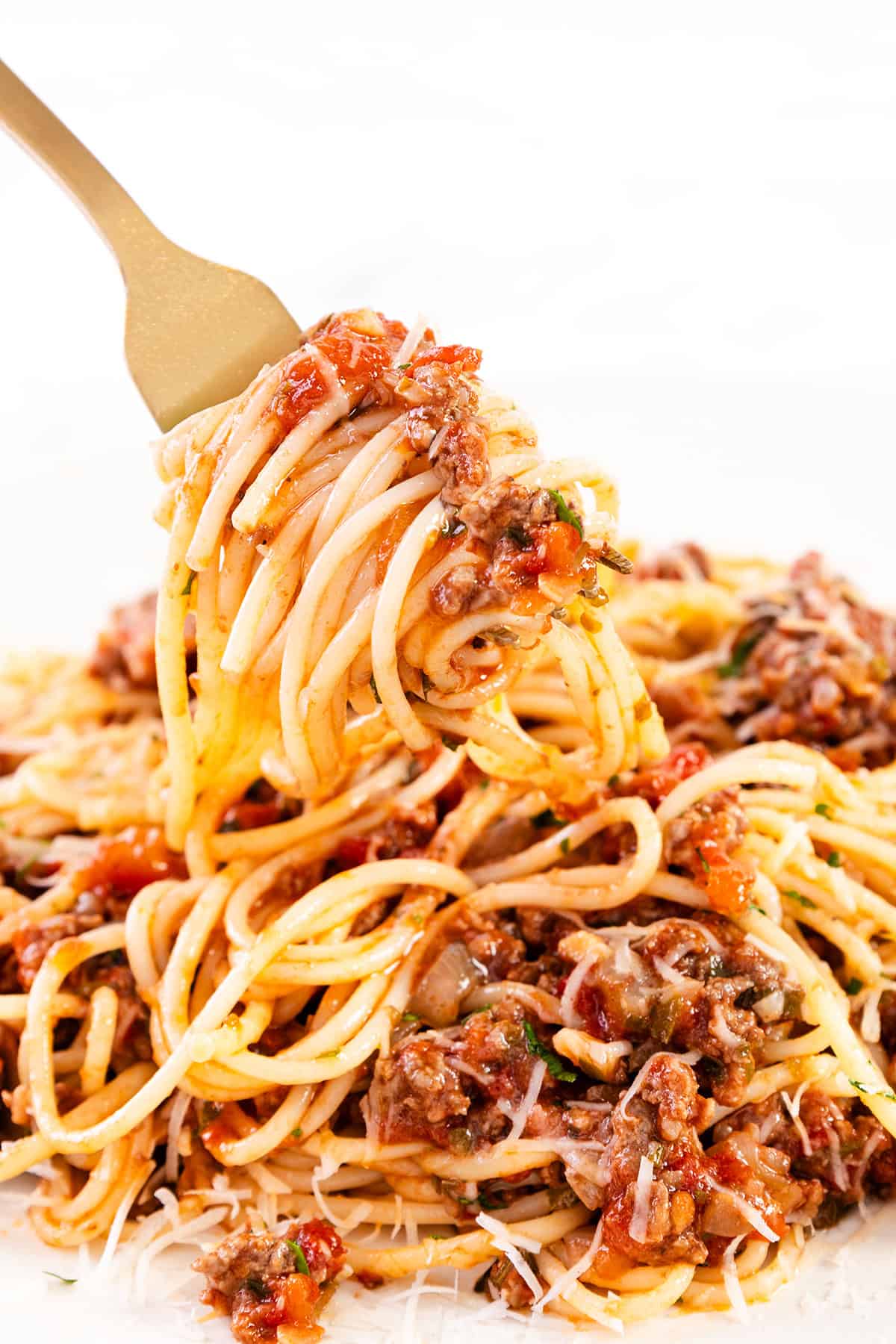
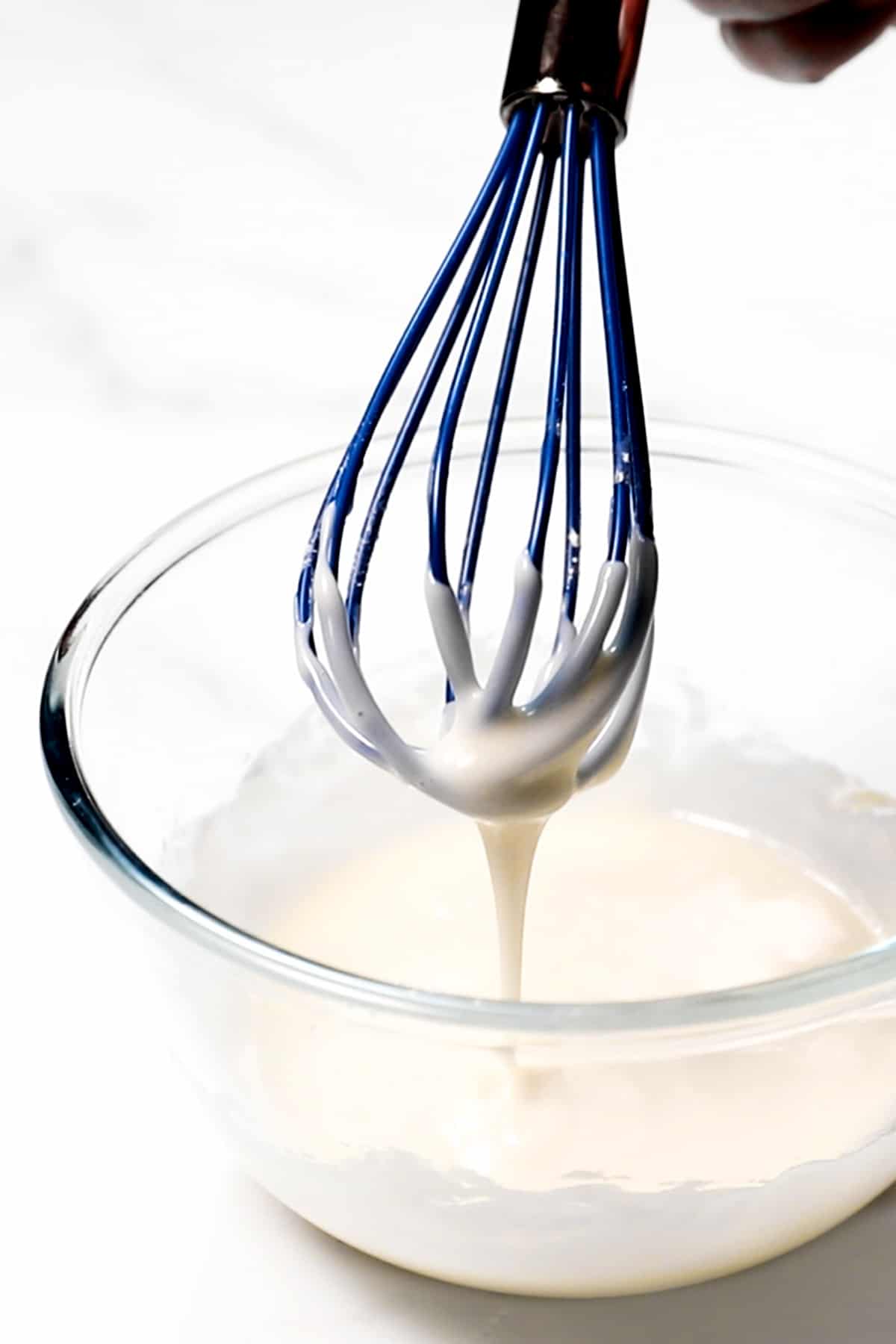
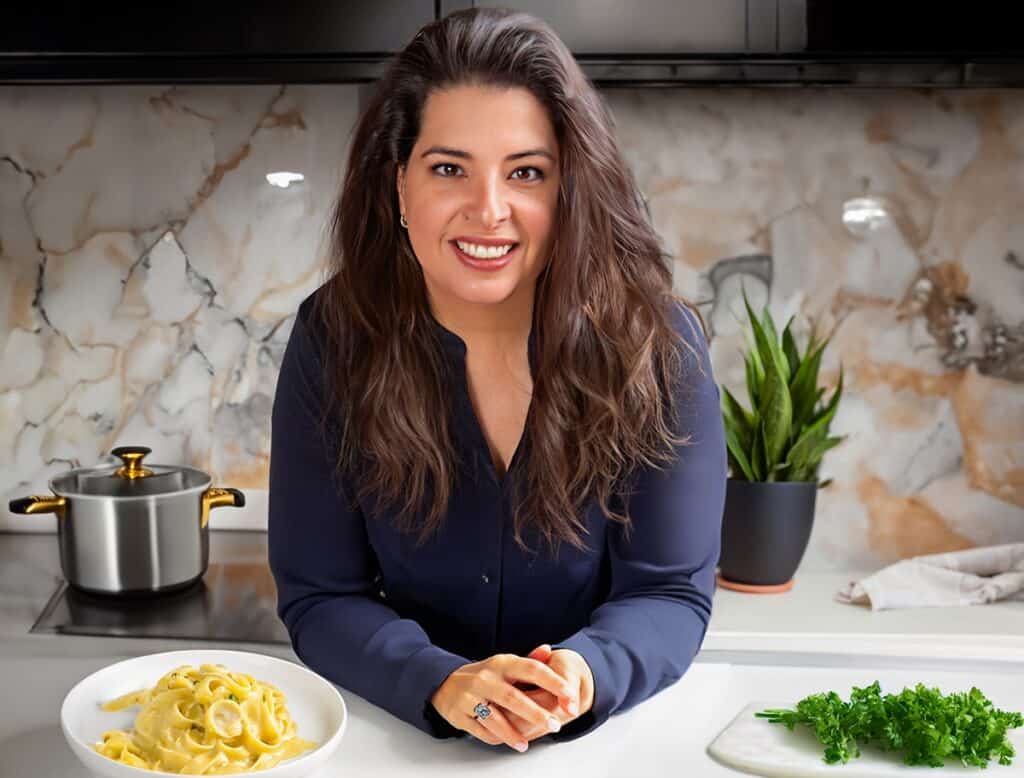
Leave a Reply